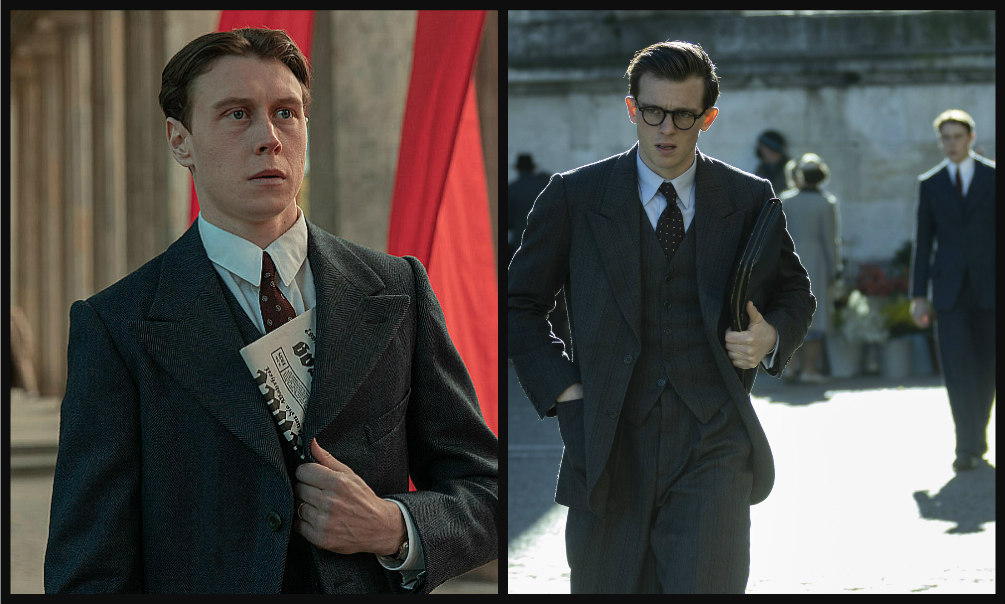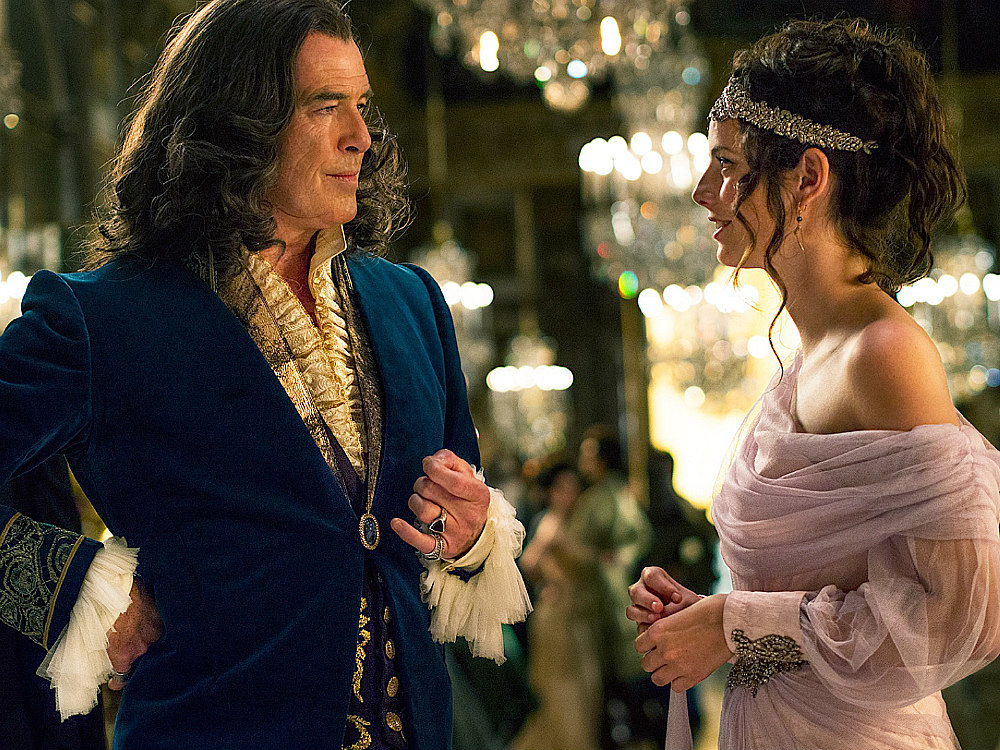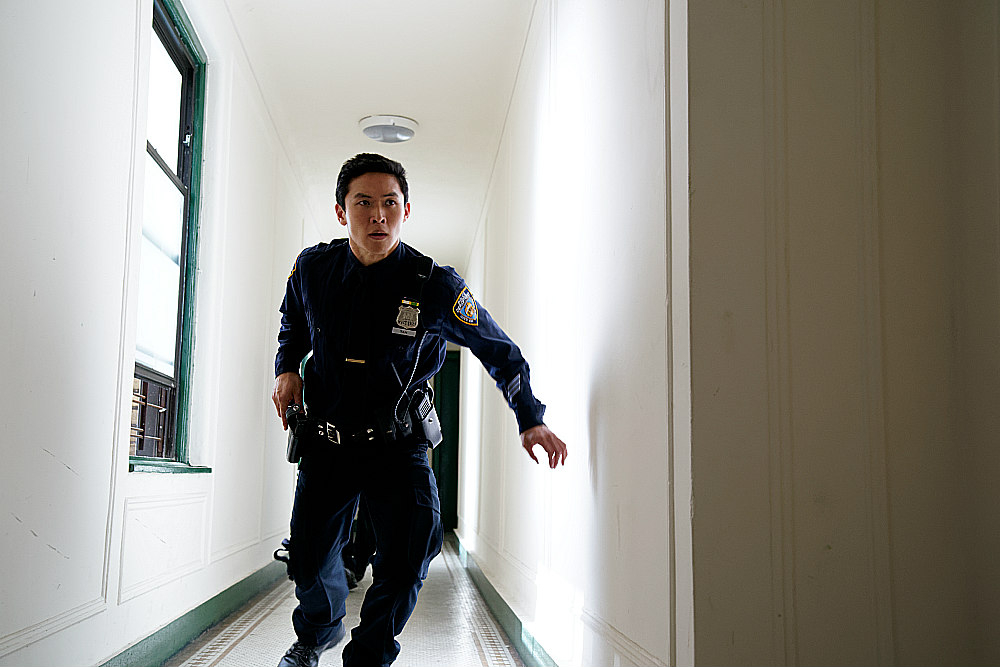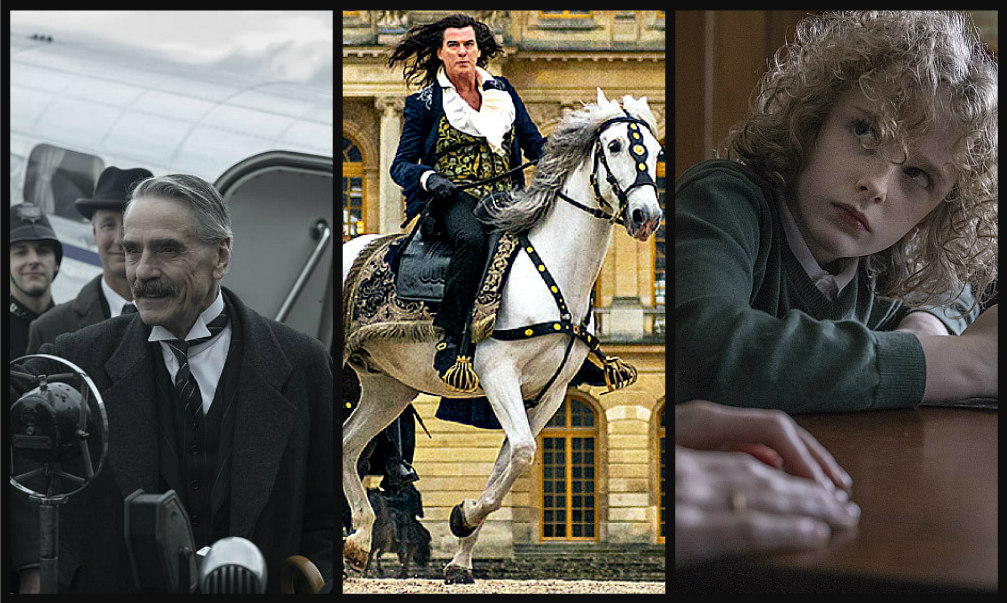The big films have stayed away again, but here's a good one with star power on Netflix, and these others: a non-history set in France, a psychological thriller set in Scotland, two tales of urban unease and a rock-by-women documentary that you'll find enlightening.
If you need something to watch with the kids, notice that CRAVE has just added the first two Free Willy movies. There were four, one video-only, but these are the best.
And new this week we have ...
Munich: The Edge of War: 4 stars
The King's Daughter: 2
Marionette: 3½
Fanny — The Right to Rock: 3
A Shot Through the Wall: 4
Zeros and Ones: 2
MUNICH: THE EDGE OF WAR: Don't go into this one expecting a thriller. It has tension in spots but is largely a thoughtful rumination on what might have been. Like those articles we see now and then about what if history had gone differently. In this case: what if Neville Chamberlain as prime minister of England had stood up to Hitler instead of signing a peace pact and allowing him to take part of Czechoslovakia. Could it have stalled his lebensraum ambitions and prevented the Second World War? Idle speculation, but a pretty good drama based on a novel by Robert Harris and featuring Jeremy Irons as the PM.

The speculative part of the story centres on two young aides: one English (George MacKay), one German (Jannis Niewöhner). They're fictional but may represent strains of thought.

They were buddies at Oxford University, had a falling out over their opinion of Hitler and met again years later. The German now considered Hitler a monster and was part of a plot against him. A document he wants to pass along could stop the Munich agreement. The Englishman, now Chamberlain's principal secretary, is sent to receive it. The tension is in their trying to meet up, hand over the paper, evade German security and get the English to read it. MacKay also has a terrific scene meeting privately with Hitler, looking more scrawny than usual but played with smiling menace by Ulrich Matthes, who we saw playing Goebbels in another movie. But it is Jeremy Irons we watch most closely. His PM isn't naive; he's well-meaning. Even though we know what came out of it, the story here is very engaging and handsomely presented. (Netflix) 4 out of 5
THE KING'S DAUGHTER: I don't much care that the novel this film is based on won a Nebula Award. This isn't science fiction, it's an adolescent fantasy that plays badly with history, specifically King Louis XIV of France, the Sun King played here by Pierce Brosnan. The story is ludicrous. Imagine this: Louis wants immortality and sends his sailors to find the lost city of Atlantis and bring back a mermaid, which he keeps in a pool under his castle until a coming solar eclipse during when he'll sacrifice her. He also intends to marry his daughter off to the son of the richest man in the kingdom. That'll help revive the dwindling treasury. Not the movie, though, even with its lush art direction (partially filmed at Versailles) and brisk pace, directed by journeyman Sean McNamara.

The daughter (Kaya Scodelario) connects with the doleful mermaid, who is played without words by Chinese star Bingbing Fan. They're both prisoners, she recognizes, and when she learns of the big plan, demands she be released. And she wants to go with her. (To live in the ocean?) There's an underground river to swim, a fight on a suspension bridge, explosions and gunshots. And William Hurt, the best of the actors, as a priest offering insights like: “Only love is immortal, your majesty.” I was distracted by noticing how many people in France speak with English accents. Almost all, it seems. (Scotiabank and many suburban theatres.) 2 out of 5
MARIONETTE: Here's a small film that really does thrill. Psychologically. It takes the evil child genre in a more pleasing direction: into a mystery and puzzle that'll have you highly involved.
A child therapist (Thekla Reuten) arrives at a new job in Scotland having come from upstate New York. We gradually learn her story, mostly through flashbacks in her dreams. She lost her husband in a car crash on a road trip. She takes over the work of a doctor (Peter Mullen) who got so obsessed with one case, he tried to commit suicide. The subject is a young boy (Elijah Wolf) who has shut down, refuses to talk and spends all his time drawing. Those pictures are alarming.

They show accidents and horror scenes that have, or will, actually happen. But how does he know about them? Is he predicting them or causing them? He says both. He says he's God. “Everything I do is controlled by me. Not him.” Delusions? But whose? His or the therapist's? Questions like that float by. Alternate universes, even Schrodinger's cat, a paradox in quantum physics, are referenced. Whatever is going on makes this an engaging movie. It's a remake of a short film by the same director, Elbert van Strien. (Available to rent or buy from four streamers.) 3½ out of 5
FANNY: THE RIGHT TO ROCK: This isn't just another rock band documentary. There are messages in here, not all totally clear, but potent just the same. It clues us in to the career of a band most of us have never heard of and shows how the group was a trailblazer. The members spoke to people of colour because some of them have a Filipina heritage. Also to gays, because some of them, maybe just one, are lesbians. One had a long affair with David Bowie, which may explain the blurb on screen in which he extols the band's importance. Absolutely clear though is the inspiration they gave to women getting into rock and roll. They predated the Go-Gos, the Runaways and others. Bonnie Raitt, John Sebastian and Def Leppard's Joe Elliott are among the artists offering their praise.
So why have they been all but forgotten? They made five albums, some with major labels, and toured extensively. But they didn't make radio hits. And they refused to play sexy, as one record company suggested. Touring wore them down. Members came and went. Eventually, they split up and decades later came back together, found they still loved making music and recorded a new album. That's all documented by Toronto filmmaker Bobbi Jo Hart, who delivers their story at a sprightly pace. Kind of like their songs. Good beat and melodic. (CRAVE) 3 out of 5
A SHOT THROUGH THE WALL: This drama offers a different take on the familiar white-cop-shoots-Black-man story … but the same concerns. The cop in this one is Chinese-American. His girlfriend is African-American. The incident was clearly an accident. But as the film shows racial politics are so heated in the U.S. these days that it hardly matters.

It's fiction, but is it really? People demonstrate. The Brooklyn cop, played by Kenny Leu, is attacked on social media and elsewhere. His gun went off in a hallway during a pursuit. The bullet killed a kid through a wall and he was charged with manslaughter and “reckless endangerment.” His partner says don't mind the reporters, “The press is looking for headlines.” A police psychiatrist interviews him. A lawyer suggests a plea deal. His dad, played by Vancouver's Tzi Ma, criticizes and his mom nags. The situation, the pressure he's under, is well-dramatized by writer-director Aimee Long, especially the feeling of guilt that comes over him. How it all started should have been discussed more than it is, but the rest is valid. 4 out of 5
ZEROS AND ONES: What does it mean when the star of a movie comes on before it starts and says, “It speaks to the moment … what we've all been going through” and then comes back at the end and says he didn't understand it either? A mystery? Maybe. The film is in no hurry to tell us what it is about. You have to make something of it yourself. It comes from one of the movies' purveyors of the cryptic, Abel Ferrara, and stars Ethan Hawke. Together they generate lots of paranoia and anxiety. It's both fascinating and frustrating. Or as Hawke concludes after the end — reflecting opposing views of life: pessimistic and optimistic.

The story isn't a platitude like that. Hawke is a soldier sent to Rome to find his brother (who he also plays). The guy is a revolutionary, it seems. He sings This Land is Your Land and alludes to the composer's anti-fascism. Rome's streets are dark and dingy and empty. Russian and Chinese gang lords rule. Society is controlled by some kind of secret cabal that's not shy to do some very graphic waterboarding torture to get what they want. The Vatican explodes. The mood, unease, anxiety are strong, but to what end? Is this Ferrara's worldview as the pandemic has shaped it? Could be. You don't have to figure it all out. Just feel the mood. (For rent at several sites, including Cineplex.) 2 out of 5





Comments